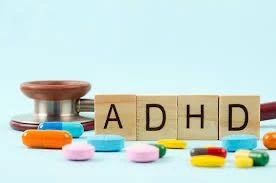The neurodevelopmental illness known as attention-deficit/hyperactivity disorder (ADHD) is typified by impulsivity, hyperactivity, and inattention. It affects people of all ages, and symptoms frequently last throughout adulthood. The mainstay of treatment for ADHD is medication, especially stimulants like methylphenidate and amphetamine-based medications. But issues have been brought up about how these drugs could be abused, misused, or diverted, especially in cases when the patient also has co-occurring substance use disorders and ADHD. This article examines the intricate interaction between substance use and ADHD medicine, looking at use patterns, risk factors, and risk-reduction strategies.
Usage Trends for ADHD Drugs and Substances
Over the past few decades, the usage of ADHD medications has progressively increased, which is indicative of both improved diagnosis and a wider range of treatment alternatives. The most often given pharmacological therapies for ADHD are stimulant drugs, such as methylphenidate (e.g., Ritalin, Concerta) and amphetamines (e.g., Adderall, Vyvanse). For many people, these drugs are useful in lowering symptoms of ADHD and enhancing functional outcomes. But because they are stimulants, they can also be abused or misused.
According to research, people with ADHD are more likely than the general population to acquire substance use disorders. This susceptibility could be a result of underlying neurobiological abnormalities linked to ADHD, such as disruption of dopaminergic circuits involved in impulse control and reward processing. Untreated symptoms of ADHD, such as issues with executive functioning and emotional control, can also lead to the adoption of unhealthy coping mechanisms, such as substance abuse.
Clinical therapy of ADHD and substance use disorders is complicated by their co-occurrence. Those who suffer from ADHD might be more likely to experiment with drugs as a kind of self-medication or as a technique to get over symptoms of the disorder. Furthermore, there is rising worry about the abuse of ADHD drugs, especially by young adults and college students, who do so in an attempt to generate euphoric effects or improve cognitive function.
Risk Factors for Substance Abuse and ADHD Medication Abuse
The following factors raise the likelihood that people with ADHD will misuse their medication and turn to drugs:
Co-occurring mental health disorders: Anxiety, depression, and conduct disorder are among the psychiatric problems that ADHD frequently coexists with. This can make the condition more vulnerable to substance use.
Genetic predisposition: Research points to a genetic overlap between substance use disorders and ADHD, suggesting that these problems are more likely to co-occur due to common genetic vulnerabilities.
Environmental influences: Access to substances, peer interactions, and socioeconomic status all have a big impact on how people with ADHD use drugs.
Treatment history: Past experiences with substance abuse and exposure to stimulant medications may have an impact on future patterns of medication abuse and adherence.
Interventions for ADHD Substance Abuse and Medication Abuse
A comprehensive strategy that addresses underlying risk factors and encourages the development of healthy coping mechanisms and treatment adherence is necessary for effective interventions aimed at reducing the abuse of ADHD medications and substance use among people with ADHD. Among the crucial interventions are:
Comprehensive examination: To help with individualized treatment planning, a detailed assessment of psychosocial variables, comorbid disorders, substance use histories, and ADHD symptoms is necessary.
Psychoeducation: It can help dispel misunderstandings and encourage adherence to treat ADHD by giving patients and their family correct information about the advantages and disadvantages of ADHD drugs as well as techniques for managing and tracking their dosage.
Cognitive-behavioral therapy (CBT): CBT programs designed to address ADHD-related impairments, like training in organizational skills and impulse control methods, can assist people in reducing their reliance on drugs and developing adaptive coping mechanisms.
Motivational interviewing: This technique can help patients improve their behavior and become more involved in their treatment by interacting with them in a cooperative and non-confrontational way as they address their ambivalence about taking their medications and using drugs.
Medication management: To maximize treatment results and lower the chance of medication misuse, careful observation of medication adherence, symptom response, and possible side effects is crucial.
Harm reduction techniques: These methods, which include opioid agonist therapy and needle exchange programs, can lessen the harmful effects of substance use for those who struggle with drug use even after seeking treatment.
Peer support and community resources: Promoting involvement in peer support organizations, including 12-step programs or ADHD coaching networks, can help people manage their symptoms of ADHD and sustain sobriety by offering them social support.
In summary
Substance abuse and misuse of ADHD medications pose serious obstacles to the treatment of ADHD, necessitating integrated strategies that address addictive and mental diseases. Clinicians can customize interventions to address the specific needs of persons with co-occurring illnesses by having a thorough grasp of the intricate interactions that exist between ADHD, medication usage, and substance use. It is feasible to minimize the hazards connected with substance abuse and misuse of ADHD medications while fostering the best potential outcomes for individuals with ADHD by means of thorough assessment, evidence-based treatment modalities, and continuous support.
In summary, a comprehensive awareness of each patient\'s unique risk factors, specialized interventions, and collaborative care strategies are necessary for the optimal management of ADHD medication and drug use. Clinicians can assist people with ADHD in navigating the challenges of drug therapy while lowering the likelihood of substance-related damage by addressing underlying vulnerabilities and encouraging good coping mechanisms. We can help people with ADHD achieve their best possible health and well-being by investing more time in clinical innovation and research.


